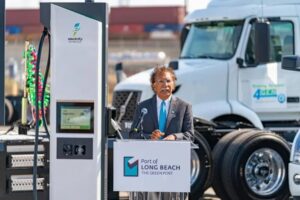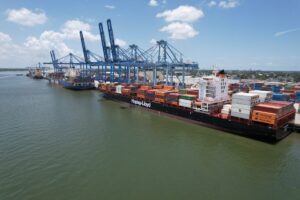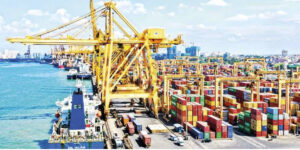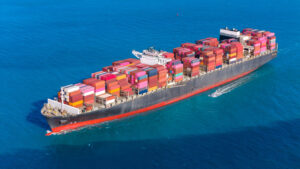DP World has signed a 20-year concession agreement with the Republic of Mali to build a 1000-hectare logistics hub outside the capital Bamako.
The Mali Logistics Hub (MLH) will have inland container depots (ICD) and container freight stations (CFS) to facilitate the import and exports of goods.
It will be located close to the Dakar-Bamoko rail line and be capable of handling 300,000 TEU.
Additionally, DP World will provide three locomotive trains to boost cargo and passenger traffic along the Malian rail network.
The company will also implement its online paperless facilitation platform to speed up the movement of goods and reduce processing times.
Find out how virtual queing is a game changer for DP World by reading a Port Technology technical paper
DP World Chairman and CEO Sultan Ahmed Bin Sulayem commented: “The Malian market is expected to grow over the next two decades and is driven by a robust economic and population growth.
“Thus, the Mali Logistics Hub is much needed and will provide the country with a logistics platform that aims to facilitate the import and export of goods via the Port of Dakar, which is operated by DP World.
“DP World’s investment will significantly cut processing times for goods and thus facilitate trade. We are committed to enabling trade in the region and helping local businesses and people prosper, and look forward to working together.”
Mali Minister of Equipment and Transport Moulaye Ahmed Boubacar said: “We are excited to partner with DP World on this project. The Mali Logistics Hub will dramatically improve the cost and time of trade for Mali.
“The project will provide us with a first-class logistics facility comparable to global standards and will be the largest in terms of capacity.
“We are confident that with DP World as a partner we will be able to meet the expectations of our people, traders and exporters to have access to more markets and to bring more efficiency and cost effectiveness to international trade.
“The project also gives the Republic of Mali the opportunity to be connected to global trade lanes, and to speed up access and transport in and out of the country.”
Read more:
-
DP World's first half volume has grown by 6% across its global terminals
-
Djibouti government could offer DP World $500 million to settle Doraleh Terminal dispute










